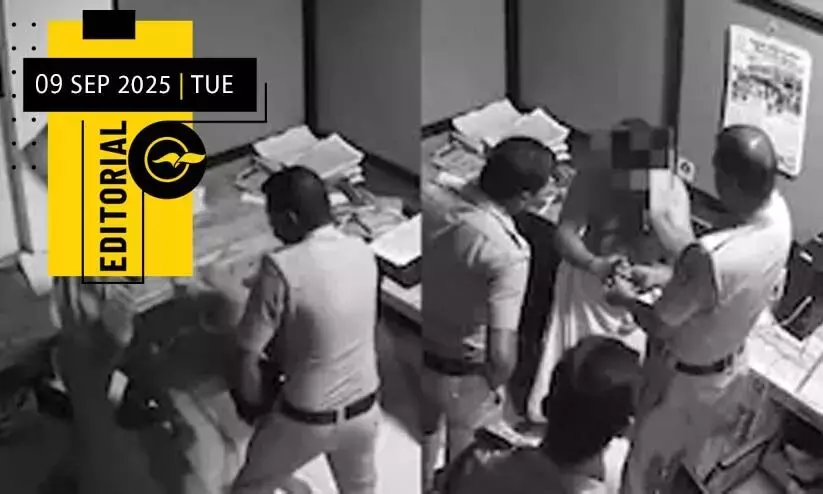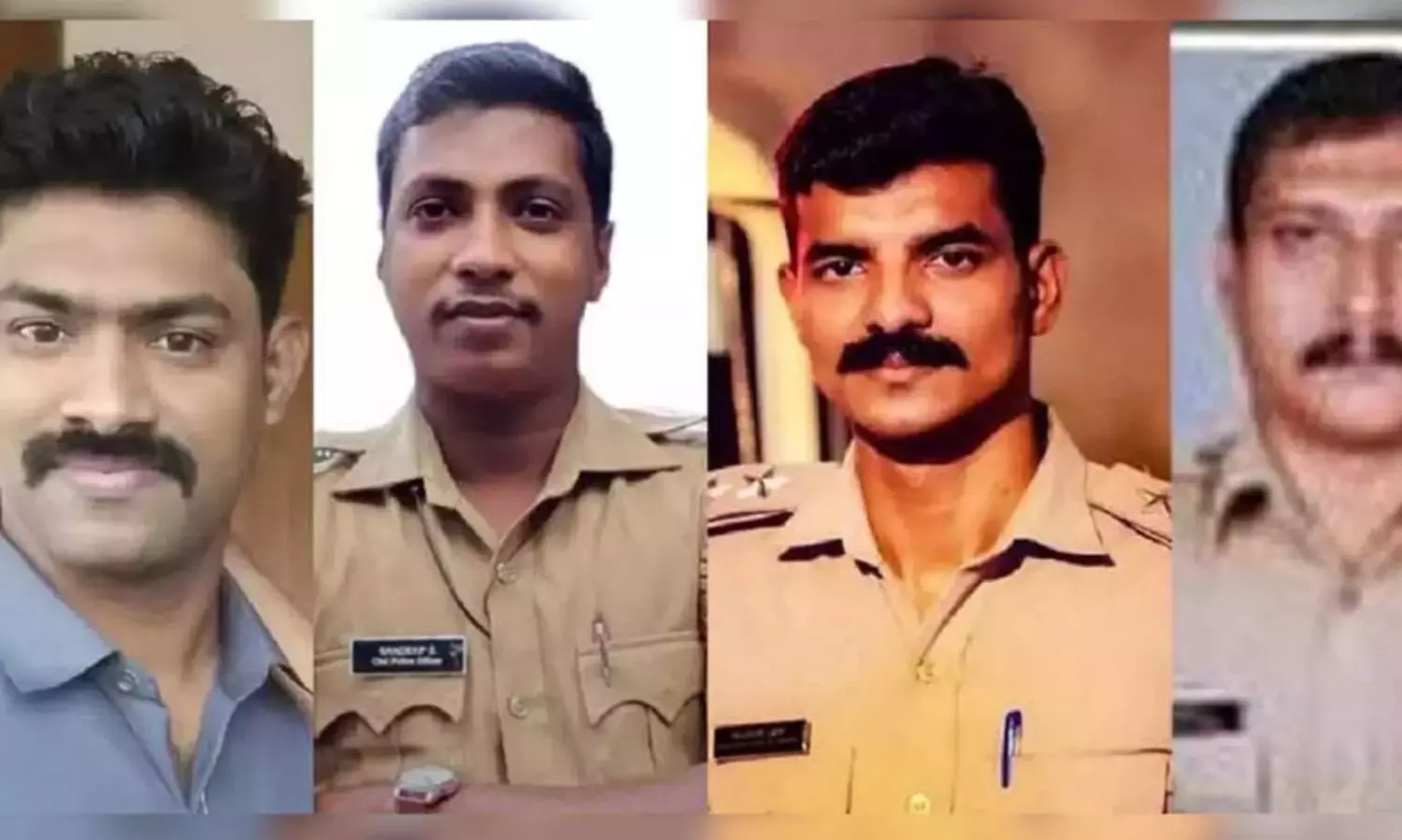
Policing needs to be revamped totally
text_fieldsEven though the investigative efficiency of the Kerala Police includes many “firm actions,” what emerged from Kunnamkulam recently is a terrifying example of the Kerala Police force’s “brutal acts.” Two and a half years ago, Sujith, a local Youth Congress leader challenged in his capacity as a public activist the “crime” of unnecessarily detaining young locals under the leadership of an SI (sub-inspector). In response, he was unjustly taken to Kunnamkulam Police Station, where the officers subjected him to inhuman torture. The four policemen who carried out the torture have been suspended. The fifth officer has been transferred to another department, and the department is now in serious deliberation over what action to take.
The high-ranking officials and political leaders who protected the culprits for 29 months were forced to suspend them only when the situation reached a point where the public might have seized the station. The CCTV footage of the torture that surfaced recently is deeply shocking. The police even committed worse excesses in parts outside the camera’s view. If the young leader, who endured brutal torture, had not fought a prolonged legal battle to bring those visuals out, this incident would have remained hidden, exposing the authorities’ intrusive actions. Sujith’s long struggle, despite torture, threats, and inducements, has inspired many, as recent revelations about police brutality and conspiracies involving money extortion show. Following these new disclosures, numerous people have filed applications with the Right to Information Commission seeking the police station’s CCTV footage. RTI records have already revealed that a large portion of the police consists of criminals. Two years ago, Chief Minister Pinarayi Vijayan himself disclosed in the Legislative Assembly that the state police had 828 criminals. The Chief Secretary had also recommended the immediate dismissal of a few of them. However, due to procedural complexities, a significant portion still remain in service. In fact, the number of criminals has increased considerably. Many of them continue to enjoy protection from the government, senior officials, and their unions. It has not been long since the verdict in the Udayakumar case acquitted all the accused. In the state of Kerala, those who killed several people in custody, including Vinayan from Thrissur and Sreejith from Neyyattinkara, continue to serve comfortably in the police.
The government must decide that no one who unnecessarily rides roughshod over the public or uses torture chambers has any place in the police, and it must implement that decision. Even though the violence of the criminal police at Kunnamkulam Station is evident, those who protected them for so long and hid the visuals from the public must explain themselves before the people. Action against them is imperative. When senior police officers, who extort bribes to disrupt the Pooram festival or negotiate deals for political leadership, receive protection from the state’s highest political leadership and their associates, the lower-level police start believing that rough treatment of citizens and walking hand-in-hand with loan-shark and gangster groups is not a crime.
With the direct evidence of the custodial assault emerging after two and a half years, widespread protests and uproar have erupted across the state. However, the fact that it took two and a half years for one of the state’s most powerful political parties, the Congress, to mount a “strong” struggle against the brutal torture of their young leader provides grounds for analyzing our public activism. The issue was brought to light by the young man who suffered the torture and a block-level leader who stood steadfast in supporting him. The fact that he got hit for the sake of the party and now has to run himself to prove it also is a sad commentary on the pitiful state of political and civil rights activism in the state.







